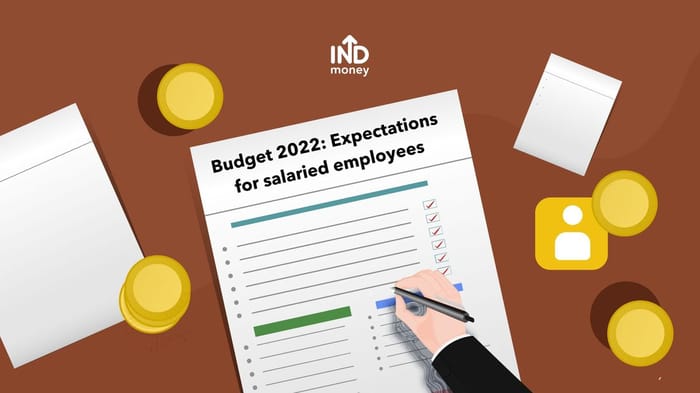Budget 2022: Expectations for salaried employees

Finance Minister Nirmala Sitharaman is all set to present her fourth Union Budget on February 1st. Different sectors of the economy are eagerly waiting for the budget with their expectations. The same is applicable to the earning sections of the society, particularly the salaried class which is mainly concerned with relaxation in tax structure and expects the government to increase the tax exemption limit under different sections of the tax laws.
The Budget 2022 expectation for salaried employees will mainly be related to taxation. The 2022 budget for salaried employees will be having the following expectations:
Work From Home Allowance
The COVID-19 pandemic affected all the sectors of the economy very badly. The companies were asked to close the offices in the lockdown and the employees were forced to work from home. However, this translated into something different altogether. We have now realized that the same work that we do in the office, can be done easily from home. Today, many companies have started offering permanent remote work jobs and hybrid work as well. Although the change is welcomed, it has put several expenses on employees, which were earlier borne by the employer.
Internet bills, increased electricity bills, furniture costs, etc., are some costs that an employee working from home has to bear. Therefore, the employee class is expecting the introduction of Work From Home or WFH allowance along with tax exemption on the same. If the budget 2022 for salaried employees meets the expectation, it will help salaried employees to save more part of their salary.
Increased Deduction Limit Under Section 80C
The budget for salaried employees 2022 is also expected to increase the tax deduction limit offered under Section 80C of the Indian Tax Act. The provisions given under Section 80C allow taxpayers to claim a deduction of up to Rs 1.5 lakh through the eligible investment options. This helps them reduce their annual income, and subsequently the tax liability. Some of the popular investment schemes eligible for tax deduction under Section 80C are National Savings Certificate, Public Provident Fund, Equity Linked Savings Schemes (ELSS), etc. The salaried class is expecting the limit for tax exemption to be revised and increased to a threshold of Rs 2.5 lakhs.
Expectations are also that the government should announce the interest rates associated with EPF before the end of the current financial year. This would allow employees to make tax-saving plans and file their ITR accordingly.
Not only the salaried class, but many mutual fund managers are also hoping for an increased deduction limit under Section 80C. The demand also includes the option to launch debt fund schemes under ELSS or tax saving fund schemes. A separate limit for such investment or an enhanced exemption limit will promote taxpayers to invest more money in such schemes and help fund houses to collect more funds.
Add More Cities in the Metro Cities List
Salaried employees can show the rent paid as a deduction from their annual income and reduce the tax liability. The calculation is based on several factors that also include the HRA they receive from their employers. The HRA exemption allowed for those living in metro cities is 50% of their Basic Salary + DA, whereas, for those living in non-metro cities, the limit is 40%. Therefore, the salaried employees class is hoping that the government will add more cities in the metro cities list that would allow many employees receiving HRA to claim a higher deduction from their annual income and pay less tax. Presently, only four cities- New Delhi, Mumbai, Kolkata, and Chennai are only included in the metro cities list. However, house rent in several other major cities in India such as Bangalore, Gurugram, Hyderabad, etc has increased more than the currently included metro cities.
The salaried class keenly waits for the annual budget. With the change in work structure, income constraints during the COVID pandemic, etc., the employees class is having some hopes from the government mainly in terms of tax relief.